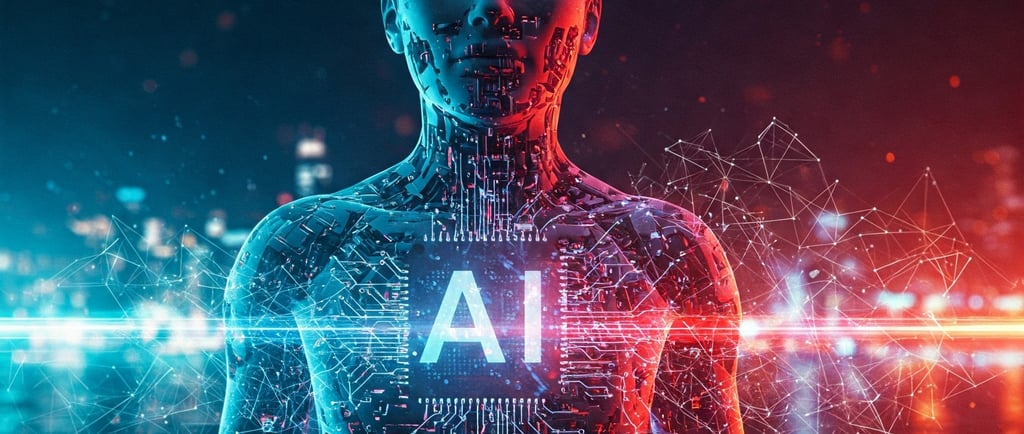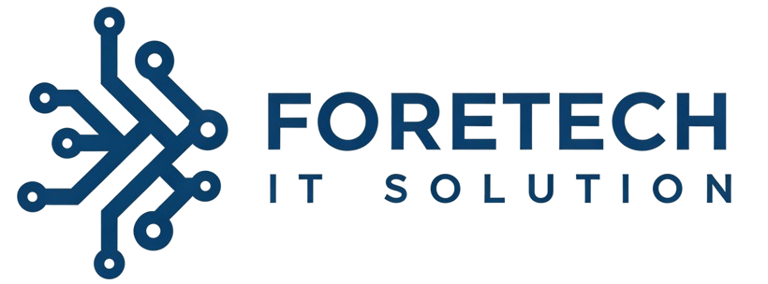The Future of AI Jobs: Will Developers Be Replaced?
The rise of ChatGPT, GitHub Copilot, and AI-powered coding tools has sparked a crucial debate: Will AI replace developers by 2030? While some fear mass unemployment, others believe AI will augment—not replace—human programmers
APP DEVELOPINGIT SOLUTIONSSOFTWARE DEVELOPEWEBSITE DEVELOPINGDATA SCIENCE
Dr. Prashant
4/9/20255 min read


The Future of AI Jobs: Will Developers Be Replaced? (2025 Reality Check)
Introduction
The rise of ChatGPT, GitHub Copilot, and AI-powered coding tools has sparked a crucial debate: Will AI replace developers by 2030?
While some fear mass unemployment, others believe AI will augment—not replace—human programmers. This in-depth analysis explores:
✔ Which programming jobs are most at risk?
✔ New AI-era developer roles emerging
✔ Skills that will remain valuable
✔ How to future-proof your career
By the end, you'll understand where the opportunities lie and how to thrive in the AI-driven tech industry.
1. The Current State of AI in Development (2024-2025)
AI Tools Already Changing Development
ToolImpactGitHub CopilotWrites 30-40% of code automaticallyChatGPT-4oDebugs, explains, and optimizes codeAmazon CodeWhispererGenerates full functions from commentsAI Code ReviewersCatch bugs faster than humans
🔹 Reality Check:
41% of developers already use AI daily (2024 Stack Overflow Survey)
Basic boilerplate code is increasingly automated
2. Jobs Most Likely to Be Disrupted
High-Risk Roles (50-80% Automation Potential)
Junior Web Developers (HTML/CSS/JS templates)
QA Testers (AI auto-testing tools like Selenium AI)
Data Entry Programmers (RPA bots handle 90% by 2027)
Technical Writers (AI docs generators like Mintlify)
Medium-Risk Roles (20-50% Impacted)
Backend Developers (AI writes CRUD APIs)
Mobile App Devs (Flutter Flow generates UI code)
DevOps Engineers (AI automates CI/CD pipelines)
Low-Risk Roles (<20% Automation)
✅ AI/ML Engineers (Need to train models)
✅ Systems Architects (Complex design decisions)
✅ Security Engineers (Adaptive threat response)
✅ UX Engineers (Human-centric design)
3. 5 New AI-Era Developer Jobs Emerging
1. AI-Human Workflow Orchestrator
Role: Design systems where AI and humans collaborate
Skills Needed: Prompt engineering, LLM fine-tuning
2. Computational Lawyer
Role: Build AI that interprets/automates legal code
Skills: Python + legal domain knowledge
3. AI Ethics Auditor
Role: Ensure AI systems are fair/unbiased
Skills: Statistics, ethics frameworks
4. Generative AI Specialist
Role: Fine-tune models for creative tasks (art, music, code)
Skills: PyTorch, diffusion models
5. Embodied AI Developer
Role: Program robots with LLM "brains" (Tesla Optimus, Figure 01)
Skills: ROS, reinforcement learning
4. Skills That Will Remain Valuable
Technical Skills
Safe SkillsDeclining SkillsSystem designMemorizing syntaxAlgorithm optimizationManual code formattingSecurity engineeringBasic data entry coding
Human-Only Skills
✔ Creative problem-solving
✔ Stakeholder communication
✔ Ethical judgment calls
🔹 Key Insight:
"The best-paid developers in 2030 won’t be the best coders—they’ll be the best at directing AI to code."
5. How to Future-Proof Your Career
Short-Term (2024-2026)
Learn AI pair programming (GitHub Copilot mastery)
Specialize in high-judgment areas (security, compliance)
Long-Term (2027-2030)
Develop "T-shaped" skills (deep in one area + broad AI literacy)
Transition to AI-augmented roles (see Section 3)
Degrees vs. Certifications
Computer Science degrees still valuable (for fundamentals)
New certs matter more:
AWS AI/ML Certification
NVIDIA AI Deployment Specialist
Google Prompt Engineering
6. Industry Leaders’ Predictions
Pessimistic View
"40% of programming jobs gone by 2030" – Gartner
"Junior dev roles hardest hit" – MIT Tech Review
Optimistic View
"AI will create more dev jobs than it replaces" – GitHub CEO
"Developer productivity will 10X, not replace" – a16z
🔹 Consensus:
Massive job transformation—not elimination—is coming.
7. Case Study: AI’s Impact at Major Tech Companies
Microsoft (GitHub Copilot)
Result: 55% faster coding
Outcome: Hired 30% more devs for complex projects
Tesla (Code AI)
Result: 80% auto-generated manufacturing code
Outcome: Shifted engineers to robotics/AI tasks
8. The Verdict: Will Developers Be Replaced?
✅ No—but the job will radically change:
Less typing code, more directing AI
Higher value on architecture/strategy
Continuous re-skilling required
The future of Artificial Intelligence (AI) is poised for significant advancements and widespread integration across various aspects of life and industry. Here's a breakdown of key trends and potential impacts:
Key Future Trends in AI:
More GenAI App Integration: Generative AI models are increasingly being integrated into everyday applications, enhancing content creation, language translation, and search engine capabilities. Expect this trend to continue, transforming how we interact with technology. For example, AI tools are already being used to write outlines for business plans and control quality in manufacturing.
Increasing AI Adoption in the Workplace: Businesses are projected to invest more in AI to automate repetitive tasks, improve productivity, and enhance efficiency. This includes applications like data input, report generation, and quality control. Studies suggest a significant increase in AI-related tech budgets in the coming years.
More Advanced Multimodal AI: AI models will increasingly process and understand information from various data types beyond text, such as audio, video, and images. This will lead to more intuitive and seamless user experiences in areas like search and content creation. For instance, smartphones can now identify objects and people in photos by processing images and metadata.
AI Agents: The evolution from simple chatbots to sophisticated AI agents capable of reasoning, planning, and learning independently is a significant trend. These agents are expected to assist with complex tasks, improve coding efficiency, and enhance data insights. Early applications might include internal tasks like password resets or vacation time reservations.
Automated AI Development ("AI for AI"): Expect innovations in using AI to automate the steps involved in creating, deploying, and managing AI models. Tools like Google's AutoML are making AI technology more accessible to non-experts.
Custom Silicon and Cloud Migrations: The demand for specialized chips (custom silicon) optimized for AI reasoning is growing. Hyperscalers are also focusing on cloud migrations and AI workloads as major revenue opportunities, offering scalable AI platforms.
AI Reasoning: AI is moving beyond basic understanding to advanced learning and decision-making, requiring more computational power and driving demand for advanced hardware.
Focus on Measuring AI Efficacy: There will be an increasing emphasis on developing systems and metrics to evaluate the effectiveness and reliability of AI applications.
Assistive Search: AI will transform how we access and understand information by improving the accuracy and efficiency of searching vast datasets through semantic search and advanced document transcription.
AI for Personalized Services: AI will be used to analyze consumer data and online activity to provide increasingly personalized services in marketing and other areas, enhancing customer experience.
Intelligent Process Automation (IPA): Combining Robotic Process Automation (RPA) with AI technologies like machine learning, NLP, and computer vision to automate end-to-end business processes and accelerate digital transformation.
Shift Toward Cybersecurity: Developing AI-powered tools to recognize, report, and prevent cyberattacks and malware threats is a crucial trend as data becomes more valuable.
AI-Powered Constituent Experience: In the public sector, AI will be used to improve citizen experiences by offering seamless and personalized access to government services.
Agricultural Robotics: The development of AI-powered robots for tasks like weeding, crop monitoring, and harvesting will contribute to sustainable farming practices.
Impact of AI Advancements:
Increased Efficiency and Productivity: AI can automate tasks, optimize processes, and improve overall efficiency across industries.
Improved Accuracy and Decision-Making: AI's ability to analyze large datasets can lead to more accurate predictions and better-informed decisions.
Enhanced Customer Experience: AI enables personalized services, recommendations, and interactions, leading to improved customer satisfaction.
Creation of New Job Opportunities: While some jobs may be automated, AI will also create new roles in areas like AI development, maintenance, and ethical oversight.
Revolutionizing Industries: AI has the potential to transform healthcare (diagnosis, treatment), finance (fraud detection, algorithmic trading), education (personalized learning), transportation (autonomous vehicles), and many other sectors.
Digitalization of Society: AI plays a crucial role in collecting, processing, and analyzing data, leading to new technologies and improved business processes.
Advancements in Media: AI-powered technologies are revolutionizing how we interact with and consume media through natural language processing, image and audio recognition, and computer vision.
Personalized Education: AI can analyze student data to provide individualized teaching and real-time feedback, improving learning outcomes.
Development of New Business Models: AI is enabling innovative business models like virtual assistants, robotic aides, and autonomous systems.
AI Research and Development:
Focus Areas: Current research focuses on areas like deep learning, neural networks, reinforcement learning, natural language processing, computer vision, and the development of more sophisticated algorithms.
Automating AI R&D: There's a growing trend of using AI itself to accelerate the research and development of next-generation AI models. AI tools are being used for tasks like code generation, design iteration, and troubleshooting.
Ethical Considerations: Ensuring the ethical development and deployment of AI is a major focus, addressing issues like bias, privacy, security, and potential job displacement.
Government Initiatives: Governments worldwide are launching initiatives to foster AI innovation, develop AI strategies, and promote research and development in the field. For example, the U.S. Department of Energy is identifying federal sites for AI data center development, and India has launched the IndiaAI mission to build a comprehensive AI ecosystem.
Industry Collaboration: Tech companies, research institutions, and governments are increasingly collaborating to advance AI research and address its challenges.
Investment Growth: Investments in AI research and development have increased significantly in recent years, reflecting the growing recognition of its potential.
The future of AI is dynamic and holds immense potential for transforming society. Continued research, ethical considerations, and collaboration will be crucial in shaping its trajectory and ensuring its benefits are realized responsibly.
Blog Post
